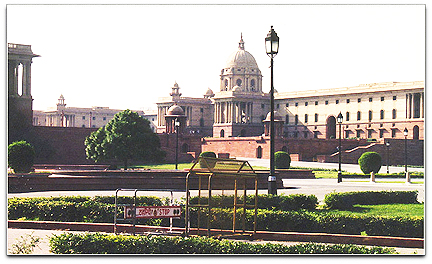The ITAT, aligning the facts of the case in place, observed that foreign satellite companies earn their income by providing transponder facilities to Indian companies. They operate the satellites situated at a geostationary location, 36,000 kms away. Through the transponders installed at these satellites, the satellite companies do facilitate data transmission to the telecasting companies. By an agreement, a fee is paid to the satellite companies by the telecasting companies. The ITAT held that the scope of “royalty” is not restricted either by the Income-Tax Act or DTAA. A simple process, even if it is an intellectual property, falls within the ambit of royalty. Telecasting companies are enabled to telecast their programmes by uplinking or downlinking the data/programmes with the help of the transponders. As the consideration paid by telecasting companies is for the use of and the right to use the transponder facilities, they can be treated as royalty fees, held the ITAT.
Satnews Daily
October 26th, 2009
Indian ITAT Makes Life Difficult For "Foreign" SatCos
A special bench of the Income-Tax Appellate Tribunal (ITAT), New Delhi, last Friday held that fees paid by Indian broadcasting companies to
foreign satellite service providers can be taxed in India. The 10.4 percent levy will affect the income of more than 20 foreign firms — they earn fees of Rs 50-200 crore each, by providing transponder facilities to Indian broadcasters.
 The ITAT bench was ruling on a plea by Dutch firm New Satellite and Thailand-based Shin Satellite that they should not be made to pay tax in India as the payment they received in return for transponder services cannot be construed as royalty payment. The I-T department has been treating the income earned by foreign satellite companies as royalty and, therefore, levied tax on the receipts. The department also held the view that even under the Double Taxation Avoidance Agreement (DTAA), the services rendered by the satellite companies to Indian broadcasters are a “secret process” and, therefore, liable to be taxed. The foreign satellite companies held the view that the amount received by them from India cannot be taxed in India as they have no material or men or machinery or a combination of them in India. Therefore, it cannot be construed that the particular income (the fees paid by Indian broadcasters) has neither arisen nor accrued in India, and the government has no locus standi for taxing such receipts.
The ITAT bench was ruling on a plea by Dutch firm New Satellite and Thailand-based Shin Satellite that they should not be made to pay tax in India as the payment they received in return for transponder services cannot be construed as royalty payment. The I-T department has been treating the income earned by foreign satellite companies as royalty and, therefore, levied tax on the receipts. The department also held the view that even under the Double Taxation Avoidance Agreement (DTAA), the services rendered by the satellite companies to Indian broadcasters are a “secret process” and, therefore, liable to be taxed. The foreign satellite companies held the view that the amount received by them from India cannot be taxed in India as they have no material or men or machinery or a combination of them in India. Therefore, it cannot be construed that the particular income (the fees paid by Indian broadcasters) has neither arisen nor accrued in India, and the government has no locus standi for taxing such receipts.
The ITAT, aligning the facts of the case in place, observed that foreign satellite companies earn their income by providing transponder facilities to Indian companies. They operate the satellites situated at a geostationary location, 36,000 kms away. Through the transponders installed at these satellites, the satellite companies do facilitate data transmission to the telecasting companies. By an agreement, a fee is paid to the satellite companies by the telecasting companies. The ITAT held that the scope of “royalty” is not restricted either by the Income-Tax Act or DTAA. A simple process, even if it is an intellectual property, falls within the ambit of royalty. Telecasting companies are enabled to telecast their programmes by uplinking or downlinking the data/programmes with the help of the transponders. As the consideration paid by telecasting companies is for the use of and the right to use the transponder facilities, they can be treated as royalty fees, held the ITAT.
The ITAT, aligning the facts of the case in place, observed that foreign satellite companies earn their income by providing transponder facilities to Indian companies. They operate the satellites situated at a geostationary location, 36,000 kms away. Through the transponders installed at these satellites, the satellite companies do facilitate data transmission to the telecasting companies. By an agreement, a fee is paid to the satellite companies by the telecasting companies. The ITAT held that the scope of “royalty” is not restricted either by the Income-Tax Act or DTAA. A simple process, even if it is an intellectual property, falls within the ambit of royalty. Telecasting companies are enabled to telecast their programmes by uplinking or downlinking the data/programmes with the help of the transponders. As the consideration paid by telecasting companies is for the use of and the right to use the transponder facilities, they can be treated as royalty fees, held the ITAT.

